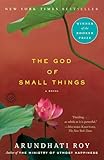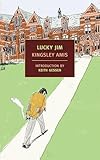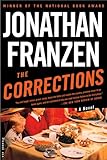
“HELLO MY NAME IS MARX,” read the candy cane colored name tag handed to me. One woman actually said that I looked like a Marx, the scruffy beard and omni-directional head of hair. Another teased that she and I ought to make Marx the latest mintage in Manhattan baby name trending by starting a blog to promote it. A University of Chicago grad said, “Go” — she was ready to talk me under the table with Marxist theory, and when I protested how little I actually remembered off the cuff, she said she would settle for Durkheim, Weber, or Mills. Wasn’t there someone? Goffman? I responded, Nietzsche: Down with the old gods, up with the mania for replacing them! Then our time was up. I joked about how I intended to use the event and number of dates I would meet as a chance to rally support for socialist thought and motion toward a groundswell to upend the capitalist system, which, didn’t they agree, had gone on long enough?
Nobody said they didn’t.
With doomed grandeur, F. Scott Fitzgerald wrote that “there are no second acts in American lives” — not accounting, perhaps, for the fortune and fame that could follow publication of a memoir premised on there being no second act. Fitzgerald lived true to his word: his twilight in Hollywood, the mythic cradle of American radical self-reinvention, figured as a long wait for the notes of the nightingale’s song to sound. Marx, on the other hand, declared that everything that has ever happened happens twice: “the first time as tragedy, the second as farce.” The third time, fourth, fifth, and so on, we are on our own.
Not everyone knows, per Jonathan Sperber’s recent bio, that Karl Marx’s earliest manuscript was called The Book of Love. Student Marx composed the collection of romantic poems for childhood sweetheart and lifelong partner Jenny von Westphalen. Over the course of their lives together, his romance with Jenny transformed into a romance of a different kind, a belief in the inevitability of international revolution whose contours were somewhat hazy, if keenly felt.
This is what happened on the day before Valentine’s Day, 2013, a Wednesday, at the Housing Works Bookstore on Crosby Street just south of the Calvin Klein billboard in SoHo. A first ever. A good cause: “I Like Your Glasses: Literary Speed Dating.” Each participant found at the entrance a neon green envelope, including a library card in manila sleeve for taking notes on each “date,” and a name tag featuring the handle of a character from a favorite book (favorites requested earlier by e-mail). These would be our pseudonyms for the night. Each date would last an almost militantly enforced four minutes. A single case of lingering — whether affectionate, desirous, or uncertain — could cause the entire caterpillar crawl to go legs up. There was to be no lingering. Lingering is for books.

 We each were to have brought one, a title to display for the sake of conversation. From my messenger bag I drew John Barth’s Lost in the Funhouse. Each “date” station had a name — my point of origin dubbed Heorot for Beowulf’s banquet hall where Grendel was a regular gate-crasher. Café tables set in rows through the heart of Housing Works Bookstore’s assembly space formed the stations, solicitous waiters snaking around them to offer speed-date refreshment, tonic of composure or forgetting.
We each were to have brought one, a title to display for the sake of conversation. From my messenger bag I drew John Barth’s Lost in the Funhouse. Each “date” station had a name — my point of origin dubbed Heorot for Beowulf’s banquet hall where Grendel was a regular gate-crasher. Café tables set in rows through the heart of Housing Works Bookstore’s assembly space formed the stations, solicitous waiters snaking around them to offer speed-date refreshment, tonic of composure or forgetting.
Two emcees spoke over a scratchy sound system by the bathrooms, raging like Dylan Thomas against the frenetic buzz of our voices. They joked we would hate them and use our hatred of them as grist for conversation with the strangers across from us. I succeeded at not mentioning them until my final match of the night, a brunette with an anchor tattooed on her bare shoulder. Her pseudonym was Estha, one plucked by the organizers’ naming committee from Arundhati Roy’s The God of Small Things. I looked at her and she looked at me, fleetingly at one in our total disdain for the emcees as they pleaded everyone be quiet. In that moment, I am sure of it, we both wished for their overthrow.
This was as close to authentic connection as I found. Estha was probably about five years my senior (although, impossible to say: she could have been 29, too, a lover of the wind and the rain and the sun on her cheeks). She said that she was bouncing back from a divorce to the guy with whom she had cofounded a restaurant in Brooklyn — the same restaurant, it turns out, I went to on my first date with the last woman to cohabitate with me. I was touched by the coincidence and the total lack of rationale for verbalizing the coincidence to Estha, as we had about a minute left in our exchange, and a top 10 rule of first dates, the real kind, is not to mention exes unless desiring to come off as a pet pitifully leashed to a station wagon pulling obliviously away and gaining speed.
My eyes might have gone a little fuzzy, all the same, and Estha took my expression of fuzziness for susceptibility, emphasizing how she always made sure to mention the name of the restaurant she and her ex founded when possible. I realized Estha, like me, was attempting to find a purpose for the evening, what it had really all been about, if it had not been what it was supposed to be about (the exceedingly worthy charitable cause, notwithstanding). What it had all really been about, I decided, was capitalism, making a product of ourselves and pitching it to strangers at four-minute intervals: life as an ad incarnate. Estha, at least, had the class not to be promoting specifically herself but a physical location in the world that she had played a part in dreaming a reinvention for, one that we, any of us guys carouselling by, could go visit.
There was also Karenina from Idaho — a girl from Idaho! — and June, who was quiet, and Ruth, whose pseudonym’s source text was, for me, a winner, and Grace, who knew her political and sociological thinkers, and Kit, who laughed at me or an awareness of the cool, amusing film through which we saw each other, the cattle stall of the standard speed dating experience retrofitted with funhouse literary mirrors.

 I tried not to steal peeks at the next woman over both because it was rude to the woman I was speaking with and because I wanted every meeting to be a surprise with a genuine response, not performed or calculated. Though, Reader, I tell you, my naïve ambition became difficult to maintain as I stood up to move on to Calliope of the Marx babies, then Babette, who had the air of a cigarette-smoking beauty queen, and Anne, and Hazel, and Lizzy, and my consciousness of the fact that the more I repeated myself in response to the same questions, the less sincere I became, our comedian hosts droning on, their voices insistent, their words incomprehensible, the face presently across from me feeling more and more like a test-marketing subject for a new product which was My Projected Self. Shame at projections gone awry sloughed away as new conversation played immediately over old, like a new album in place of last year’s, with Daisy, who wondered whether or not she ought to read The Corrections, and Margaret Peel, who was significantly older and to whom I said I was probably not the guy she imagined meeting that evening, but what about her make-believe name, its literary origin? (Lucky Jim, she explained, our organizers having conflated her favorite author, Martin Amis, with his father, Kingsley, then named her after a character in Kingsley Amis’s most famous novel, a novel she had never read…although I had, I was reminded then), and Isabel, whose expression was like a runner’s in the early miles of a race, and finally, Estha, of the anchor tattoo and lovable Brooklyn restaurant.
I tried not to steal peeks at the next woman over both because it was rude to the woman I was speaking with and because I wanted every meeting to be a surprise with a genuine response, not performed or calculated. Though, Reader, I tell you, my naïve ambition became difficult to maintain as I stood up to move on to Calliope of the Marx babies, then Babette, who had the air of a cigarette-smoking beauty queen, and Anne, and Hazel, and Lizzy, and my consciousness of the fact that the more I repeated myself in response to the same questions, the less sincere I became, our comedian hosts droning on, their voices insistent, their words incomprehensible, the face presently across from me feeling more and more like a test-marketing subject for a new product which was My Projected Self. Shame at projections gone awry sloughed away as new conversation played immediately over old, like a new album in place of last year’s, with Daisy, who wondered whether or not she ought to read The Corrections, and Margaret Peel, who was significantly older and to whom I said I was probably not the guy she imagined meeting that evening, but what about her make-believe name, its literary origin? (Lucky Jim, she explained, our organizers having conflated her favorite author, Martin Amis, with his father, Kingsley, then named her after a character in Kingsley Amis’s most famous novel, a novel she had never read…although I had, I was reminded then), and Isabel, whose expression was like a runner’s in the early miles of a race, and finally, Estha, of the anchor tattoo and lovable Brooklyn restaurant.
One thing about capitalism, I have noticed, is that its appeal is never stronger than in the aftermath of a breakup, love spilling forth from the vessel that shaped it, all that energy and longing to be known and to know in turn seeking new forms to cleave to, things that did not previously define you. Conceivably a human being could live this way forever, making bonds, breaking bonds, and reaching out through expenditures of concentration and will to take on more trappings, assume other forms, a kind of perennial runaway from the prurience of small-town gossip and stifling judgment, glorying in the purity of the new.
There is what we forget and what we remember, and I cannot say for certain how accurately I have recalled an event now seven months distant, or where fiction, despite conscious intention, has blurred the edges of fact and so made them softer, the facts, but thematically more concentrated, molding from a chaos of temporarily overlapping paths something that reads as almost retraceable. A moment of possible return.
To find yourself speed dating is to acknowledge, at least to yourself, not without humor, a waywardness of romantic course, to become increasingly conscious of yourself as an advertisement for yourself, a mercurial herald, as you move from one table to the next, one consciousness and then another and another flitting by image-saturated eyes. In your remove, the recognitions you have but don’t speak, a story begins to build, refined by each new face, each curious glance, the unspoken attempt to find a hold in the world everyone shares. It is almost possible to believe that the world consists entirely of surfaces and that the ones presently before us are the only we will ever know.
If it is true that capitalism is the final organizing principle humanity will ever know, the snaking tables around which we are to carousel forever, but not just capitalism in the abstract, but this capitalism, where big companies merge with big companies, big publishers with big publishers — the fewer meaningful players on the field, the less actual competition, the closer our capitalism resembles Soviet Russia, a state ruled by one all-encompassing company whose elite direct the bureaucratic circus — then I might have been seeing symptoms in the material conditions of the speed dating scene, or the shape the material conditions gave my sense of self, those of us on the carousel that night in February. As we passed each other by, our personalities become weightless, the stories inside the books we carried felt more and more real.
Image Credit: Flickr/Alan O’Rourke









